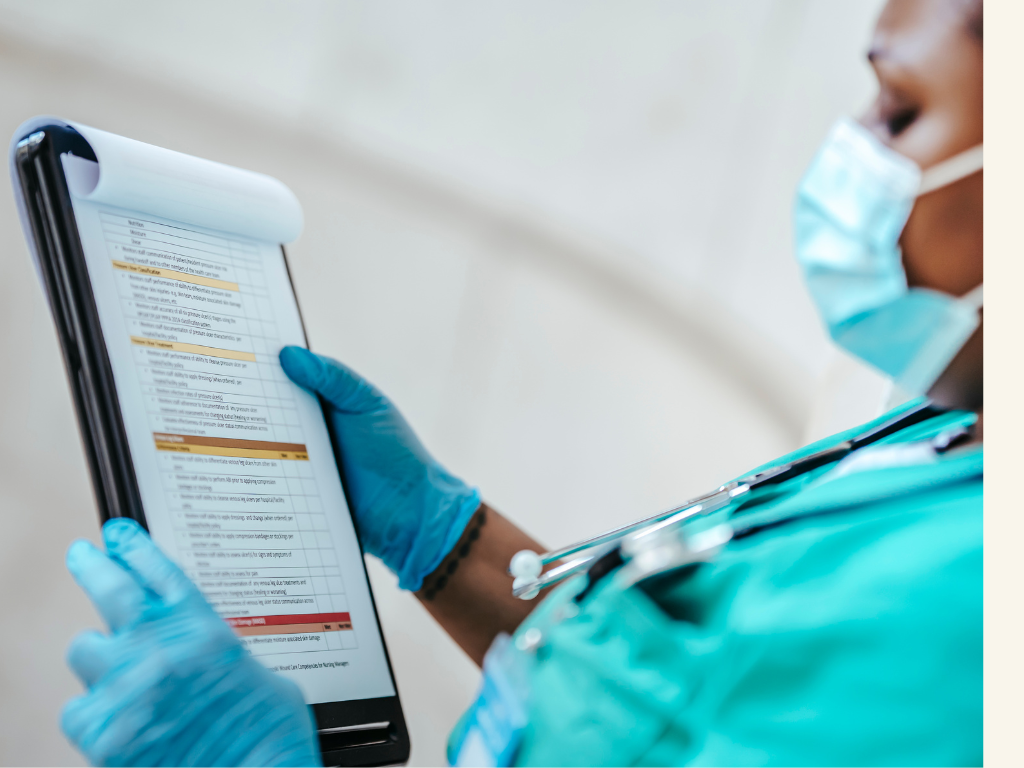Mission Statement
The Department of Biology offers courses to serve four types of students
The graduates are expected to be acquainted with the basic principles of cellular biology, molecular biology, microbiology, zoology, and ecology to apply these concepts using analytical reasoning and experimental methodology.
Student Learning Outcomes
Upon completion of coursework in the biological sciences, students will demonstrate an understanding of major concepts, theoretical principles, and experimental findings in biology. Students will also be able to employ critical thinking and efficient problem-solving skills in the following four areas:
Conceptual Knowledge in the Biological Sciences
Students will demonstrate comprehensive understanding of fundamental biological concepts, from molecular and cellular processes to ecosystem dynamics.
Biological Research
Students will develop skills in experimental design, data collection, analysis, and interpretation using modern biological research methodologies.
Scientific Literacy and Communication
Students will effectively communicate scientific information through written reports, oral presentations, and visual displays to diverse audiences.
The Role of Science in Society
Students will understand the ethical implications of biological research and its applications in addressing societal challenges and policy decisions.
Academic Programs
Our department offers comprehensive programs designed to prepare students for careers in biological sciences, healthcare, education, and research.

Biology, B.S.
Comprehensive program covering all major areas of biology from molecular to ecological levels. Ideal preparation for graduate school, professional programs, and careers in biological sciences.

Biology, A.A.
Two-year associate degree providing foundational knowledge in biological sciences, perfect for transfer students or those exploring the field before committing to a four-year program.

Secondary Education in Biology, B.A.
Combines strong biological content knowledge with pedagogical training to prepare highly qualified biology teachers for secondary schools.

Biology Minor
Provides essential biological knowledge to complement other majors, requiring core courses in general biology, cell biology, and genetics with electives.
Career Opportunities
Biology graduates are prepared for diverse career paths in healthcare, research, education, biotechnology, and environmental sciences. Our programs provide the foundation for both immediate employment and advanced study.
Healthcare & Medicine
- Physician
- Dentist
- Veterinarian
- Pharmacist
- Physical Therapist
- Nurse
- Medical Technologist
- Physician Assistant
Research & Biotechnology
- Research Scientist
- Laboratory Technician
- Biotechnology Specialist
- Microbiologist
- Geneticist
- Biochemist
- Pharmaceutical Researcher
- Clinical Research Coordinator
Environmental & Conservation
- Environmental Scientist
- Wildlife Biologist
- Conservation Biologist
- Ecologist
- Environmental Consultant
- Park Ranger
- Marine Biologist
- Environmental Educator
Education & Communication
- Biology Teacher
- Professor
- Science Writer
- Museum Curator
- Science Communicator
- Educational Consultant
- Curriculum Developer
- Science Illustrator
Academic Programs
Our biology programs are designed to provide students with comprehensive knowledge of biological sciences and hands-on laboratory experience.
Choose from our four program options, each tailored to specific career goals and academic interests:
Biology, B.S.
Special Requirements
Biology majors are required to take all of the core courses (BIO 111, BIO 112, BIO 221, BIO 322, BIO 331, and NSD 111) at Tougaloo College unless they have transferred in with them. Students must obtain a minimum grade of “C” in all biology courses and required supporting courses in Chemistry, Mathematics, and Physics. Students must receive a minimum grade of “C” in all prerequisites to courses in which they enroll. Biology majors must obtain the permission of their academic advisor and the Department Chair before taking any Biology course or required elective course at another institution. Biology majors will be allowed to take or repeat only two required supportive courses outside of Tougaloo College, but the student must attempt the course at least once at Tougaloo College. Majors transferring from junior colleges cannot transfer Biology courses that would substitute for 300 or 400-level Biology courses at Tougaloo without approval of the Biology Department. They must take all junior and senior level Biology courses at Tougaloo College unless they are approved by the Biology department chair to be taken at another institution.
Required Courses
This course serves to introduce potential STEM majors to all of the disciplines housed within the School of Natural Sciences. Through team-teaching, students will be exposed to the fundamental concepts and applications of computer science, mathematics, chemistry, physics, and biology. Required participation in divisional seminars and workshops will also provide students with a well-rounded view of career opportunities in the STEM fields.
CREDIT: 2 SEMESTER HOUR(S)
This course provides a comprehensive treatment of the major principles of modern biology. Topics include cell structure, cell membrane, metabolism, cellular respiration, cell cycle/ mitosis, Mendelian genetics, DNA structure and replication, and protein synthesis. This course is intended primarily for Biology majors and those interested in healthrelated careers. Three hours of lecture per week. One three-hour laboratory per week (BIL 111).
CREDIT: 4 SEMESTER HOUR(S)
Prerequisite(s): MAT 103
This is a continuation of BIO 111 and is a comprehensive treatment of the major principles of modern biology. Topics include evolution, photosynthesis, plant structure/growth/transport/ nutrition/reproduction, and animal nutrition/digestion/circulation/gas exchange/immune system/regulation/excretion/ endocrine system/reproduction/development/nervous system. Intended primarily for Biology majors and those interested in pre-medicine. Three hours of lecture per week. Three hours of lecture per week. One three-hour laboratory per week (BIL 112).
CREDIT: 4 SEMESTER HOUR(S)
Prerequisite(s): BIO 111
This course is a study of the morphology and physiology of cells and cell organelles; diversity of cell types resulting from cell specialization; mechanisms by which cells reproduce, develop, and evolve; methodology by which cell physiology and morphology are studied. Three hours of lecture per week. One three-hour laboratory per week (BIL 221).
CREDIT: 4 SEMESTER HOUR(S)
Prerequisite(s): BIO 112, CHE 115 or consent of instructor.
This course introduces classical and molecular genetics. Three hours of lecture per week. One three-hour laboratory per week (BIL 322).
CREDIT: 4 SEMESTER HOUR(S)
Prerequisite(s): BIO 221
This course introduces the structure and function of microorganisms with special emphasis on bacteria and viruses. The important basic principles of modern Biology, such as metabolism and genetics, are emphasized. Three hours of lecture per week. One three-hour laboratory per week (BIL 331).
CREDIT: 4 SEMESTER HOUR(S)
Prerequisite(s): BIO 112 or BIO 115 and BIO 116
This is a course required of all senior Biology majors. The objective of the course is to enable students to analyze in-depth issues and topics in Biology. Students are expected to write their senior paper and make an oral presentation during the year. Students are also expected to successfully pass a comprehensive exam that assesses conceptual knowledge from BIO 111, BIO 112, BIO 221, and BIO 331.
CREDIT: 1 SEMESTER HOUR(S)
Prerequisite(s): Successful completion of the Core Courses (NSD 111 , BIO 111, BIO 112, BIO 221, BIO 331) and either BIO 322 or one Biology elective.
This is a course required of all senior Biology majors. The objective of the course is to enable students to analyze in-depth issues and topics in Biology. Students are expected to write their senior paper and make an oral presentation during the year. Students are also expected to successfully pass a comprehensive exam that assesses conceptual knowledge from BIO 111, BIO 112, BIO 221, and BIO 331.
CREDIT: 1 SEMESTER HOUR(S)
Prerequisite(s): BIO 471
These are introductory courses in the principles of chemistry. Topics include the mole concept, stoichiometry, states of matter, thermodynamics, chemical bonding, equilibria, kinetics, acid-base reactions, and oxidation-reduction reactions.
CREDIT: 3 SEMESTER HOUR(S)
Prerequisite(s): Math ACT score 20 or CHE 104 with a grade of C
Corequisite(s): CHE 117, MAT 103 or MAT 104 or MAT 221
These are introductory courses in the principles of chemistry. Topics include the mole concept, stoichiometry, states of matter, thermodynamics, chemical bonding, equilibria, kinetics, acid-base reactions, and oxidation-reduction reactions.
CREDIT: 3 SEMESTER HOUR(S)
Prerequisite(s): CHE 115 with grade of C
Corequisite(s): MAT 104 or MAT 221 and CHE 118
These are introductory laboratory courses to demonstrate, clarify, and develop experimentally the principles of chemistry taught in CHE 115-CHE 116. One three-hour laboratory per week.
CREDIT: 1 SEMESTER HOUR(S)
Corequisite(s): CHE 115
These are introductory laboratory courses to demonstrate, clarify, and develop experimentally the principles of chemistry taught in CHE 115-CHE 116. One three-hour laboratory per week.
CREDIT: 1 SEMESTER HOUR(S)
Corequisite(s): CHE 116
These courses provide an introduction to the chemistry of carbon compounds. Organic structures and functional groups, stereochemistry and conformational analysis, kinetics, important organic reactions and their mechanisms and their use in organic synthesis are discussed. Offered each semester. Three hours of lecture per week.
CREDIT: 3 SEMESTER HOUR(S)
Prerequisite(s): CHE 116 with C or better grade.
These courses provide an introduction to the chemistry of carbon compounds. Organic structures and functional groups, stereochemistry and conformational analysis, kinetics, important organic reactions and their mechanisms and their use in organic synthesis are discussed. Offered each semester. Three hours of lecture per week.
CREDIT: 3 SEMESTER HOUR(S)
Prerequisite(s): CHE 225 with C or better grade.
This is an introductory laboratory course that includes techniques and methods used in synThesis, separation, and purification. IR spectroscopy, thin-layer and column and gas chromatography methods are studied. Offered each semester.
CREDIT: 1 SEMESTER HOUR(S)
Corequisite(s): CHE 225
This is a course discussing the theory and use of IR, NMR, and mass spectrometry; strategies of multistep synThesis; and methods of organic structure determination. It involves practical laboratory experience with multistep syntheses, organic structure determination and the use of various instrumental techniques. Offered each semester.
CREDIT: 1 SEMESTER HOUR(S)
Prerequisite(s): CHE 227 with a grade of C or above.
Corequisite(s): CHE 226
This course is a study of real numbers, functions, limits continuity, differentiation, application of derivative, Rolle’s Theorem, Mean Value Theorem, anti-derivatives, the definite integral. Offered every semester.
CREDIT: 3 SEMESTER HOUR(S)
Prerequisite(s): MAT 104 or MAT 105 with a minimum grade of “C.”
Physics Requirements
Students must complete either PHY 123 & 124 or PHY 223 & 224 to fulfill the two-course physics requirement.
This course is a basic study of the principles of physics for science majors and for non-science majors with good mathematics backgrounds. Topics covered without the use of calculus include space, time and motion, optics and waves, mechanics, heat, electricity and magnetism, and modern physics. Offered every fall. Three hours of lecture and problem solving per week. Three hours of laboratory per week.
CREDIT: 4 SEMESTER HOUR(S)
Corequisite(s): MAT 103, MAT 104, or MAT 105 (to replace MAT 103, MAT 104) or consent of the instructor.
This course is a basic study of the principles of physics for science majors and for non-science majors with good mathematics backgrounds. Topics covered without the use of calculus include space, time and motion, optics and waves, mechanics, heat, electricity and magnetism, and modern physics. Offered every spring. Three hours of lecture and problem solving per week. Three hours of laboratory per week.
CREDIT: 4 SEMESTER HOUR(S)
Corequisite(s): MAT 103, MAT 104, or MAT 105 (to replace MAT 103, 104) or consent of the instructor.
This one-semester course will employ calculus in the study of key components of Newtonian Mechanics including Fluid Mechanics and Gravitation. Offered every spring. Three hours of lecture and problem solving per week. Three-hour laboratory period per week.
CREDIT: 4 SEMESTER HOUR(S)
Prerequisite(s): MAT 221 or PHY 111
This one-semester course will employ calculus in the study of Oscillations and Waves, Electricity, and Magnetism. Offered every fall. Three hours of lecture and problem solving per week. Three-hour laboratory period per week.
CREDIT: 4 SEMESTER HOUR(S)
Prerequisite(s): MAT 222 and PHY 223
Biology, A.A.
In addition to the bachelor’s degree, the Department of Biology also offers an Associate of Arts in Biology. This degree seeks to serve students who are interested in Biological Sciences and intend to pursue a degree at a 4-year institution but are either unsure whether the specific program interests them or are potentially interested in a biology minor. Students enrolled in the Associate of Arts program will graduate with both General Education credits and credits in the sciences, for a total of 67 hours. When selected appropriately, all courses are transferrable to the Bachelor of Science Degree in Biology at Tougaloo College.
Required Core Courses (30 Credit Hours)
This course provides a comprehensive treatment of the major principles of modern biology. Topics include cell structure, cell membrane, metabolism, cellular respiration, cell cycle/ mitosis, Mendelian genetics, DNA structure and replication, and protein synthesis. This course is intended primarily for Biology majors and those interested in healthrelated careers. Three hours of lecture per week. One three-hour laboratory per week (BIL 111).
CREDIT: 4 SEMESTER HOUR(S)
Prerequisite(s): MAT 103
This is a continuation of BIO 111 and is a comprehensive treatment of the major principles of modern biology. Topics include evolution, photosynthesis, plant structure/growth/transport/ nutrition/reproduction, and animal nutrition/digestion/circulation/gas exchange/immune system/regulation/excretion/ endocrine system/reproduction/development/nervous system. Intended primarily for Biology majors and those interested in pre-medicine. Three hours of lecture per week. Three hours of lecture per week. One three-hour laboratory per week (BIL 112).
CREDIT: 4 SEMESTER HOUR(S)
Prerequisite(s): BIO 111
This course is a study of the morphology and physiology of cells and cell organelles; diversity of cell types resulting from cell specialization; mechanisms by which cells reproduce, develop, and evolve; methodology by which cell physiology and morphology are studied. Three hours of lecture per week. One three-hour laboratory per week (BIL 221).
CREDIT: 4 SEMESTER HOUR(S)
Prerequisite(s): BIO 112, CHE 115 or consent of instructor.
This course consists of a study of nutrition for all individuals. Digestion, metabolism, and diet therapy are introduced. Three hours of lecture per week.
CREDIT: 3 SEMESTER HOUR(S)
Prerequisite(s): BIO 112 or BIO 116, or consent of instructor.
This course introduces the principles of ecology. Part of the course is devoted to a study of population and pollution problems. Three hours of lecture plus one hour for viewing videos or discussion per week.
CREDIT: 3 SEMESTER HOUR(S)
Prerequisite(s): BIO 112
These are introductory courses in the principles of chemistry. Topics include the mole concept, stoichiometry, states of matter, thermodynamics, chemical bonding, equilibria, kinetics, acid-base reactions, and oxidation-reduction reactions.
CREDIT: 3 SEMESTER HOUR(S)
Prerequisite(s): Math ACT score 20 or CHE 104 with a grade of C
These are introductory laboratory courses to demonstrate, clarify, and develop experimentally the principles of chemistry taught in CHE 115-CHE 116. One three-hour laboratory per week.
CREDIT: 1 SEMESTER HOUR(S)
Prerequisite(s): CHE 115
These are introductory courses in the principles of chemistry. Topics include the mole concept, stoichiometry, states of matter, thermodynamics, chemical bonding, equilibria, kinetics, acid-base reactions, and oxidation-reduction reactions.
CREDIT: 3 SEMESTER HOUR(S)
Prerequisite(s): CHE 115 with grade of C
These are introductory laboratory courses to demonstrate, clarify, and develop experimentally the principles of chemistry taught in CHE 115-CHE 116. One three-hour laboratory per week.
CREDIT: 1 SEMESTER HOUR(S)
Prerequisite(s): CHE 116
The trigonometric functions: formulas, theorems, solving equations, and applications will be developed. Offered every semester.
CREDIT: 3 SEMESTER HOUR(S)
Prerequisite(s): MAT 103 with a grade of “C” or qualifying placement test score.
This course teaches a historical perspective to provide basic knowledge of the field and terminology, and to orient the students for the Jackson Heart Study program and curriculum. The course will cover the core areas of public health (history and policy, epidemiology, health services organization, environmental health, research design, biostatistics, health behavior and community health). The course will emphasize chronic disease concepts, particularly cardiovascular diseases, and provide an overview of NHLBI funded study leading the JHS. The students will also undertake projects involving literature search on the internet on issues relating to public health. The course will meet three hours per week. Offered once a year.
CREDIT: 3 SEMESTER HOUR(S)
Secondary Education in Biology, B.A.
This program combines comprehensive biological content knowledge with pedagogical training to prepare highly qualified biology teachers for secondary education.
Biology Concentration (45 Credit Hours)
This course provides a comprehensive treatment of the major principles of modern biology. Topics include cell structure, cell membrane, metabolism, cellular respiration, cell cycle/ mitosis, Mendelian genetics, DNA structure and replication, and protein synthesis. This course is intended primarily for Biology majors and those interested in healthrelated careers. Three hours of lecture per week. One three-hour laboratory per week (BIL 111).
CREDIT: 4 SEMESTER HOUR(S)
Prerequisite(s): MAT 103
This is a continuation of BIO 111 and is a comprehensive treatment of the major principles of modern biology. Topics include evolution, photosynthesis, plant structure/growth/transport/ nutrition/reproduction, and animal nutrition/digestion/circulation/gas exchange/immune system/regulation/excretion/ endocrine system/reproduction/development/nervous system. Intended primarily for Biology majors and those interested in pre-medicine. Three hours of lecture per week. Three hours of lecture per week. One three-hour laboratory per week (BIL 112).
CREDIT: 4 SEMESTER HOUR(S)
Prerequisite(s): BIO 111
This is a course that emphasizes the basic principles of diversity, evolution, and ecology. The primary purpose of this course is to acquaint the students with the web of life and man’s place within it. Three hours of lecture per week. One three-hour laboratory per week (BIL 231).
CREDIT: 4 SEMESTER HOUR(S)
Prerequisite(s): BIO 112 or consent of instructor.
This course introduces classical and molecular genetics. Three hours of lecture per week. One three-hour laboratory per week (BIL 322).
CREDIT: 4 SEMESTER HOUR(S)
Prerequisite(s): BIO 221
BIO Electives (3) 11 - 12 Semester Hour(s)
These are introductory courses in the principles of chemistry. Topics include the mole concept, stoichiometry, states of matter, thermodynamics, chemical bonding, equilibria, kinetics, acid-base reactions, and oxidation-reduction reactions.
CREDIT: 3 SEMESTER HOUR(S)
Prerequisite(s): Math ACT score 20 or CHE 104 with a grade of C
These are introductory laboratory courses to demonstrate, clarify, and develop experimentally the principles of chemistry taught in CHE 115-CHE 116. One three-hour laboratory per week.
CREDIT: 1 SEMESTER HOUR(S)
Corequisite(s): CHE 115
These are introductory courses in the principles of chemistry. Topics include the mole concept, stoichiometry, states of matter, thermodynamics, chemical bonding, equilibria, kinetics, acid-base reactions, and oxidation-reduction reactions.
CREDIT: 3 SEMESTER HOUR(S)
Prerequisite(s): CHE 115 with grade of C
These are introductory laboratory courses to demonstrate, clarify, and develop experimentally the principles of chemistry taught in CHE 115-CHE 116. One three-hour laboratory per week.
CREDIT: 1 SEMESTER HOUR(S)
Corequisite(s): CHE 116
This course is a basic study of the principles of physics for science majors and for non-science majors with good mathematics backgrounds. Topics covered without the use of calculus include space, time and motion, optics and waves, mechanics, heat, electricity and magnetism, and modern physics. Offered every fall. Three hours of lecture and problem solving per week. Three hours of laboratory per week.
CREDIT: 4 SEMESTER HOUR(S)
This course is a basic study of the principles of physics for science majors and for non-science majors with good mathematics backgrounds. Topics covered without the use of calculus include space, time and motion, optics and waves, mechanics, heat, electricity and magnetism, and modern physics. Offered every spring. Three hours of lecture and problem solving per week. Three hours of laboratory per week.
CREDIT: 4 SEMESTER HOUR(S)
Education Course Requirements
This course is designed to acquaint the student with exceptionalities. Emphasis will be placed on the educational programs, problems and needs, laws, and the skills for assessment, observation, and recording the behavior of the special student. Practicum is required.
CREDIT: 3 SEMESTER HOUR(S)
This seminar is designed to address issues and trends in behavior management. The seminar includes a wide range of Theoretical approaches and correlating applications relevant for the field of behavior management. Emphasis will be positioned on viable comprehensive methodology and strategies useful for managing student behavior in educational settings. Students are expected to cultivate a practical understanding of the application of behavior management with diverse populations. in addition, the students are expected to formulate, design, conduct, write, and present a behavior management project. A practicum is required.
CREDIT: 3 SEMESTER HOUR(S)
Prerequisite(s): EDE 101
This course is designed to acquaint students with the use of tests as instruments of measurement for cognitive and diagnostic purposes; educational research development from the historical to the present studies in the field; methods of educational research for quantitative studies and knowledge of simple qualitative measures. The use of technology in testing and measurement will also be explored.
CREDIT: 3 SEMESTER HOUR(S)
This course is designed to provide field experience for candidates for the Teacher Education program in secondary schools. While enrolled in this fifteen-week course in practicum, students will participate in a student teaching experience under the supervision of a cooperating teacher and a college supervisor. Students must pass Praxis II: Principles of Learning and Teaching examination and Praxis II (subject area/content) examination prior to student teaching. Students will be expected to demonstrate mastery of the competencies measured by the Interstate New Teacher Assessment and Support Consortium.
CREDIT: 15 SEMESTER HOUR(S)
Biology Minor
The Biology Minor provides essential biological knowledge to complement other majors, offering a solid foundation in the fundamental principles of biological sciences.
Required Courses (19-20 Credit Hours)
This course provides a comprehensive treatment of the major principles of modern biology. Topics include cell structure, cell membrane, metabolism, cellular respiration, cell cycle/ mitosis, Mendelian genetics, DNA structure and replication, and protein synthesis. This course is intended primarily for Biology majors and those interested in healthrelated careers. Three hours of lecture per week. One three-hour laboratory per week (BIL 111).
CREDIT: 4 SEMESTER HOUR(S)
Prerequisite(s): MAT 103
This is a continuation of BIO 111 and is a comprehensive treatment of the major principles of modern biology. Topics include evolution, photosynthesis, plant structure/growth/transport/ nutrition/reproduction, and animal nutrition/digestion/circulation/gas exchange/immune system/regulation/excretion/ endocrine system/reproduction/development/nervous system. Intended primarily for Biology majors and those interested in pre-medicine. Three hours of lecture per week. Three hours of lecture per week. One three-hour laboratory per week (BIL 112).
CREDIT: 4 SEMESTER HOUR(S)
Prerequisite(s): BIO 111
This course is a study of the morphology and physiology of cells and cell organelles; diversity of cell types resulting from cell specialization; mechanisms by which cells reproduce, develop, and evolve; methodology by which cell physiology and morphology are studied. Three hours of lecture per week. One three-hour laboratory per week (BIL 221).
CREDIT: 4 SEMESTER HOUR(S)
Prerequisite(s): BIO 112, CHE 115 or consent of instructor.
This course introduces classical and molecular genetics. Three hours of lecture per week. One three-hour laboratory per week (BIL 322).
CREDIT: 4 SEMESTER HOUR(S)
Prerequisite(s): BIO 221
Student must complete one biology elective.
CREDIT: 3–4 SEMESTER HOUR(S)
Biology Faculty
Our dedicated faculty members are committed to excellence in teaching, research, and mentoring students in the biological sciences.

Lianna Li, Ph.D.
Chair of Biology Department, Associate Professor of Biology
Research areas focus on Molecular Mechanisms for DCLK1 Tumorigenesis Revealed by Pathway Analysis using RNA Sequencing Data

John Barringer, M.D.
Assistant Professor of Biology, Pre-Nursing Advisor
Research areas focus on improving biology learning outcomes through innovative teaching pedagogy.

Jinghe Mao, Ph.D.
Professor of Biology
Research areas focus on the Representational Assessment tools for Neuroscience Computational Modeling and AI Engineering.

Diva Melvin, Ph.D.
Assistant Professor of Biology, Pre-Health Advisor
Research areas focus on triple negative breast cancer proliferation and metastasis, identification of biomarkers, and community education.
Ready to Explore Life Sciences?
Join a department that combines rigorous scientific training with hands-on research experience. Whether you're interested in healthcare, research, education, or biotechnology, our programs prepare you for success in the biological sciences.
